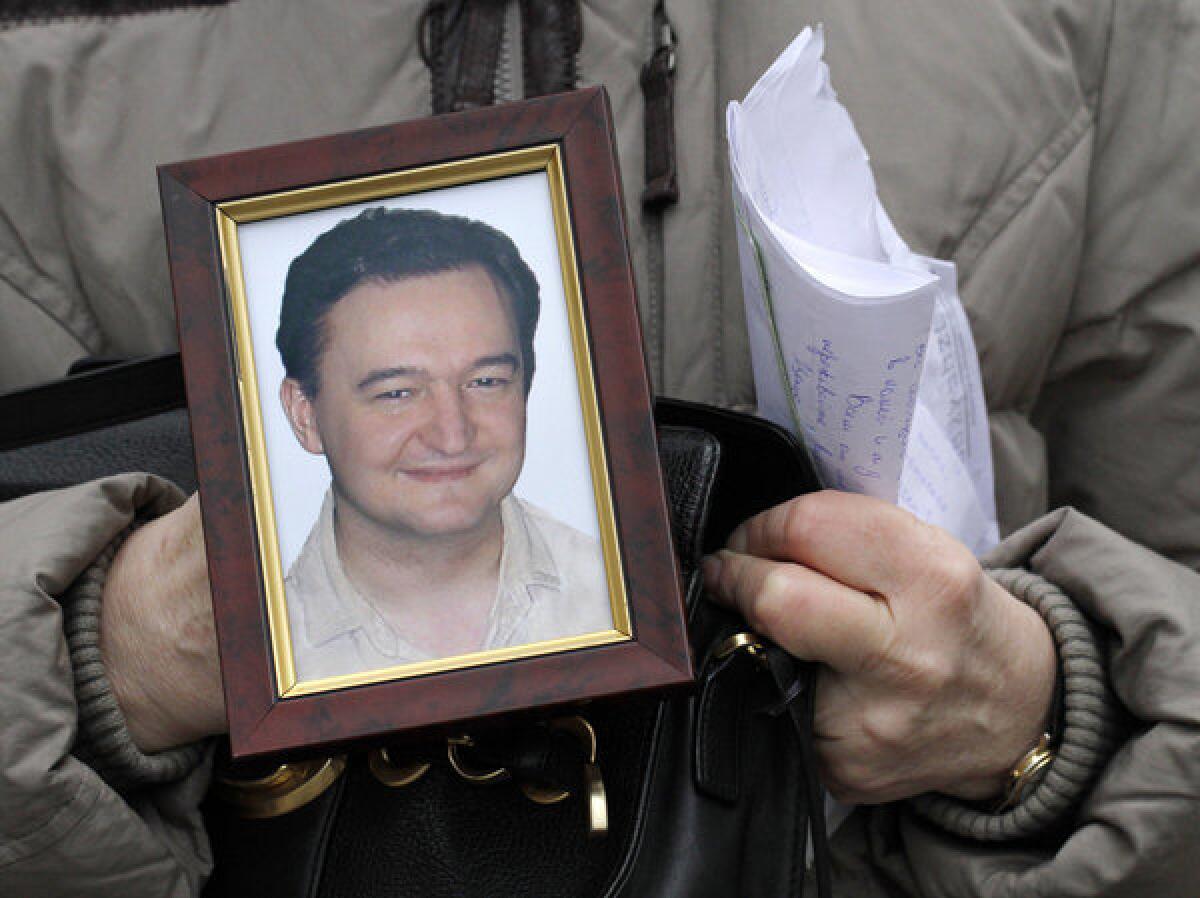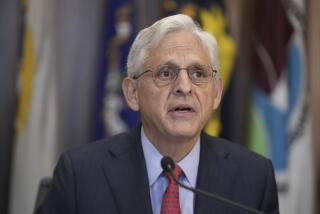U.S. Magnitsky list penalizes 18 Russians for alleged rights abuses

WASHINGTON -- The Obama administration has sanctioned 18 Russian officials for alleged violations of human rights in their country, adding new strain to the difficult U.S.-Russian relationship.
U.S. officials released the names of 18 Russian officials on Friday who they said were involved in three human rights cases, including the persecution and death of Russian whistle-blower Sergei Magnitsky. The officials will be denied visas to the United states, and any U.S. financial assets they have will be frozen.
The blacklisting was carried out under the Sergei Magnitsky Rule of Law Accountability Act of 2012, which has become a major irritant between the United States and Russia. Russians consider the law an example of hypocritical American meddling and have already adopted a retaliatory law calling for sanctions against U.S. officials.
U.S. officials said other Russian officials were sanctioned on a separate, classified blacklist. Those officials can’t be publicly identified without threatening U.S. security, they said.
Officials in Russia said they would announce their own blacklisting of U.S. officials involved in what they see as human rights abuses, as well as lawmakers responsible for the Magnitsky act.
“We will react, and [our] U.S. partners are aware of that,” Russian Foreign Minister Sergei Lavrov said at a news conference in Switzerland.
But the American list doesn’t include the names of top Russian officials, a fact that appeared to soften the reaction in Moscow.
Sergei Pushkov, chairman of the foreign relations committee of the lower house of the Russian parliament, said before release of the American list that it would “neutralize positive attempts to improve our relations.”
He said a Russian list of U.S. “undesirables” would include Guantanamo Bay prison administrators, for example, and judges who had meted out lenient sentences for American parents who had mistreated children adopted from Russia. But Pushkov was later quoted by the Interfax news agency as saying that the list was “minimal” and showed that the Obama White House was less eager than Congress to disrupt U.S.-Russian relations.
Russia has the power to disrupt U.S. diplomatic efforts in a number of high-priority areas, including counter-terrorism, the Syrian civil war and the U.S.-led effort to impose curbs on Iran’s nuclear program.
Magnitsky, who died in prison in 2009, was pressing for prosecution of corrupt tax officials. The 18 Russians named in the sanctions include officials who had been involved in his case as prosecutors, judges and jailers.
The Obama administration has been trying to improve ties with Russia, which have been deteriorating for years. In an ill-timed coincidence, President Obama’s national security advisor, Tom Donilon, arrives in Moscow on Monday for talks aimed at repairing the relationship.
A senior State Department official told reporters that officials expected a “strong Russian reaction.” Even so, he said they planned to each year review whether other Russian officials had committed violations and should be added to the list.
Officials said the full extent of the U.S. assets owned by the 18 officials wasn’t yet clear.
A number of U.S. lawmakers expressed satisfaction over the list, including Rep. Ed Royce (R-Fullerton), chairman of the House Foreign Relations Committee, who called the move “a welcome step in our efforts to support democracy and human rights in Russia.”
But Rep. Jim McGovern (D-Mass.) objected that the list was “timid and features more significant omissions than names.”
Activists had urged that the list include senior officials such as Yuri Chaika, Russia’s general prosecutor, and Ramzan Kadyrov, the leader of Chechnya, who has been accused of repeated human rights abuses.
ALSO:
French Senate approves gay marriage bill
Kerry stresses ‘possibilities of peace’ for Koreas
Egypt president uses tweets to convey kinder, gentler side
More to Read
Sign up for Essential California
The most important California stories and recommendations in your inbox every morning.
You may occasionally receive promotional content from the Los Angeles Times.











